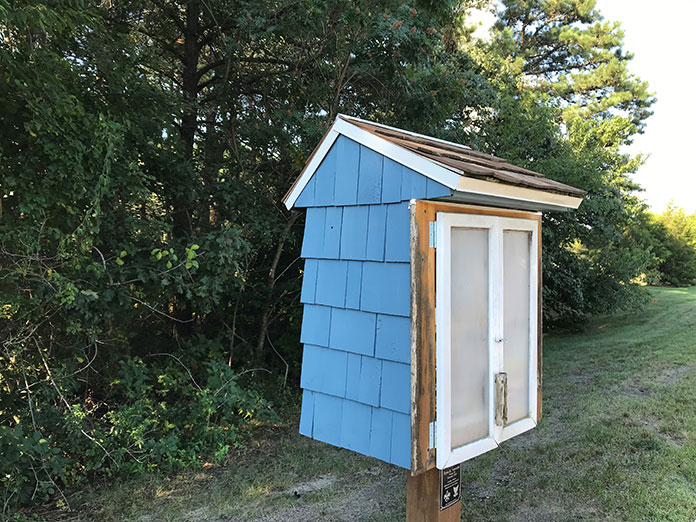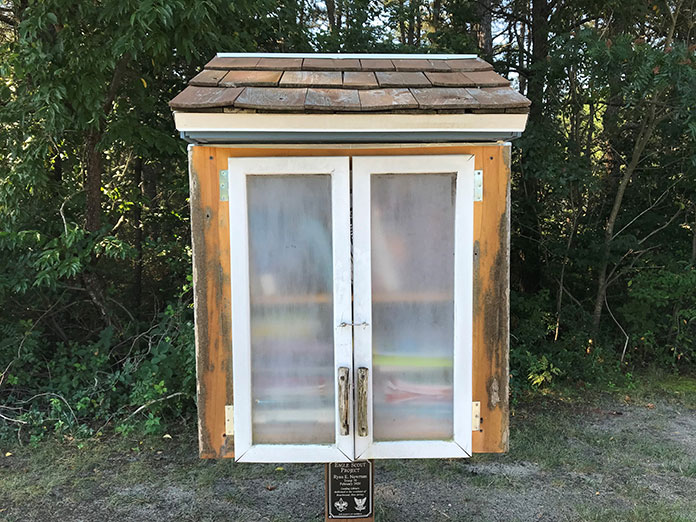
BERKELEY – There’s the large and inviting Berkeley branch of the Ocean County Library system on Station Road, but soon there might be other places for people to find books in town.
Councilman James Byrnes said he is building small libraries. They look like a quaint model house, with one or two square feet of space for books. They are mounted on posts. Shingles, a door, and waterproof paint keep the books safe from the elements.
The idea is that people can leave books there that they don’t want, or they can grab a book that looks interesting. Unlike real libraries, there’s no return fee; books don’t even have to be returned.
Byrnes said he would like to have one in each ward, perhaps in parks. Berkeley is split up into four wards.
Little Free Library, a nonprofit originating in St. Paul, MN, has been popularizing the concept of structures like these for more than a decade. Their website states “Our vision is a Little Free Library in every community and a book for every reader. We believe all people are empowered when the opportunity to discover a personally relevant book to read is not limited by time, space, or privilege.”
The movement boasts more than 150,000 libraries in 120 countries. However, these are just the ones that get registered with Little Free Library. Anyone can make a similar structure without the official kit or registering. The website, littlefreelibrary.org, has blueprints and links to help you build your own.

Money Received
In other news, the township received certain funds recently.
The first is a Local Recreation Improvements Grant in the amount of $81,000. This came from the State Department of Community Affairs.
Mayor Carmen Amato said this money will be put toward a walkway planned around Veterans Park.
The Municipal Alliance and DARE, both local anti-drug programs, will benefit from $17,967.03, he said.
This is part of a settlement with the top opioid producers. Berkeley and many other towns were part of a class action suit alleging that pharmaceutical companies pushed opioids to treat things they never should have been prescribed for. These created addictions that, in part, contributed to the national overdose epidemic.







